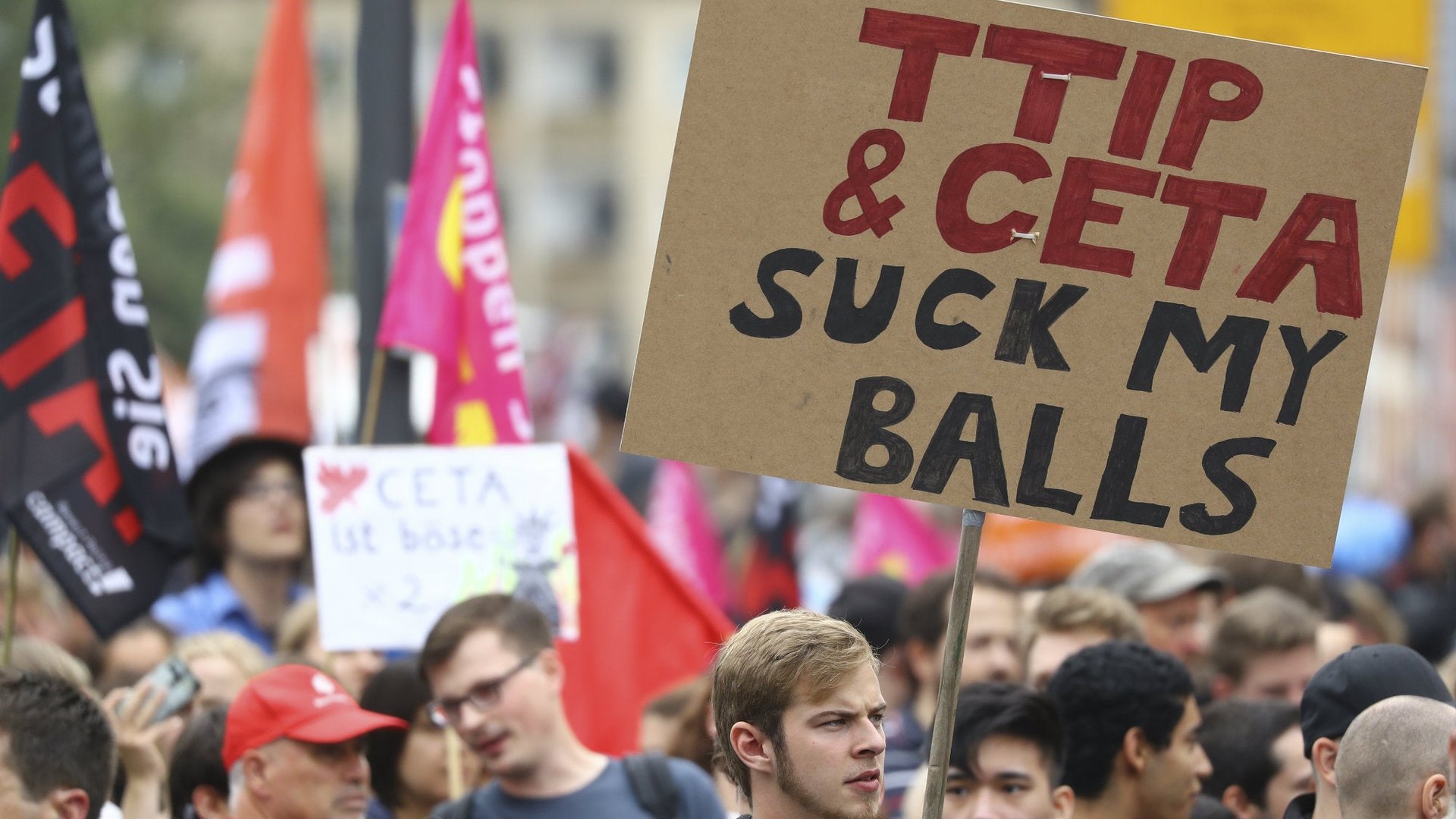The end of the free-trade trend is giving rise to new forms of interventionism
Wallonia was once an economic powerhouse. Its vast coal reserves fueled one of the earliest industrialized regions in continental Europe. But the French-speaking part of Belgium has since fallen on hard times.


Wallonia was once an economic powerhouse. Its vast coal reserves fueled one of the earliest industrialized regions in continental Europe. But the French-speaking part of Belgium has since fallen on hard times.
Before this week, few beyond Belgium cared much. But then the Walloons nearly torpedoed a free-trade deal between the EU and Canada, seven years in the making. Belgium’s quirky constitution grants its regional parliaments extensive powers, including—it turns out—the ability to veto trade deals affecting half a billion people.
That highlights the fragile state of global trade, under attack from all sides. US presidential frontrunner Hillary Clinton reversed her previous support for a major deal between the US and several Asian countries. Huge protests in Europe, especially in export-dependent Germany, have put off politicians negotiating a similar US-EU deal. Post-Brexit Britain, as ever, is a little confused—it is quitting a large free-trade area so it can do deals with countries elsewhere (that’s been going so well, after all). Donald Trump, of course, never saw a trade deal that wasn’t a “rip off.”
Against this backdrop, it’s no surprise that protectionist trade measures have been rising much faster than liberalizing ones, and global trade growth has slowed to post-crisis lows. But this isn’t simply a blanket rejection of free trade by populists on the left and right.
The UK is giving a Japanese-owned car plant special treatment to ensure its exports remain competitive if tariffs go up after Brexit. Back in Wallonia, the administration opposes free trade in chocolate with Canada on ethical grounds, but happily sells weapons to Libya and Saudi Arabia.
So while the post-war preoccupation with big multilateral trade deals is fading, a narrower, opportunistic approach is back in fashion, favoring intervention on behalf of favored industries instead of putting faith in free markets. The business barons of Wallonia’s 19th century heyday would feel right at home.